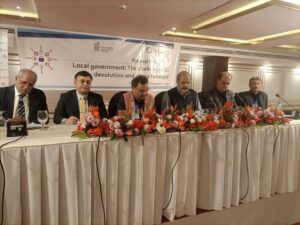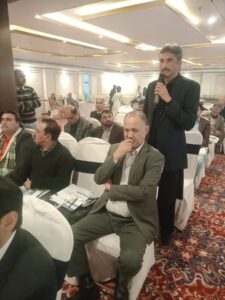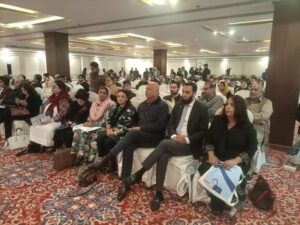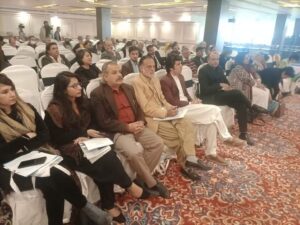HRCP conference calls for constitutional amendment to protect local governments
The Human Rights Commission of Pakistan (HRCP) organized a national conference titled Local government: The challenges to devolution and a way forward .
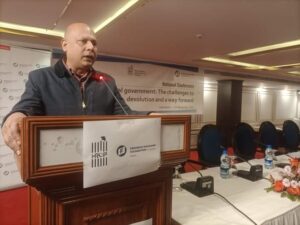
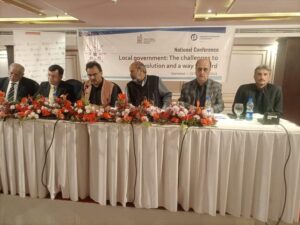
The Human Rights Commission of Pakistan (HRCP) organized a national conference titled Local government: The challenges to devolution and a way forward .
HRCP conference calls for constitutional amendment to protect local governments
Islamabad, imrana Komal
A national conference held by the Human Rights Commission of Pakistan (HRCP) in partnership with the Friedrich Naumman Foundation for Freedom (FNF), has called for a constitutional amendment to protect the form and tenure of local governments and to ensure that fiscal decentralization enables local bodies to carry out their functions effectively.
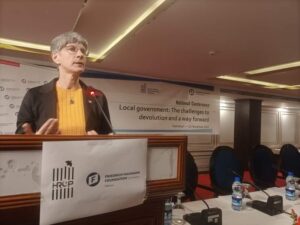
Introducing the conference, Birgit Lamm, head of the Pakistan office at FNF, said that local governments were ‘schools of democracy’. HRCP’s secretary-general Harris Khalique said that a strong democracy warranted effective, well-resourced local governments.

In the first session, Dr Umair Javed, assistant professor of politics and sociology at LUMS, explained that Article 140-A was an inadequate safeguard for local governments, adding that provincial governments’ municipal and legislative responsibilities should be delinked. Lawyer Hamid Khan said that MPAs and MNAs had become ‘unnecessary rivals’ to local governments and recommended that development funds be given only to local bodies.
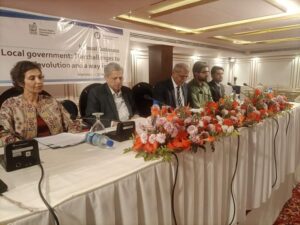
Fauzia Viqar, former chairperson of the Punjab Commission on the Status of Women, emphasized that women’s participation in local governments should not be tokenized. Dr Aziz Ahmad, professor of economics at BUITEMS, pointed to the ‘asymmetry’ between political and fiscal decentralization, saying that the latter would help reduce gender and income disparities.
Speaking at the second session, Zafarullah Khan, chief executive of Ideas for Vision 2047, said that local governments should be able to make their own rules of business. Qazi Khizar, vice-chair of HRCP’s Sindh chapter, said that marginalized groups such as trans persons and religious minorities should not be barred from direct election to local governments, even though the law provided for reserved seats.
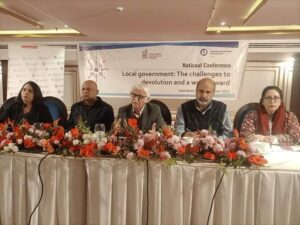
PPP KP Assembly member Ahmad Kundi suggested introducing constitutional courts as a way to safeguard local governments. Supreme Court advocate Mubeen Uddin Qazi underscored the need for a constitutional structure to protect their continuity, while Dr Nasrullah Khan, chief executive of the Centre for Peace and Development, said that a mechanism to oversee local governments’ financial accountability and capacity building of local representatives was necessary.
Speaking at the third session, Attaullah Tarar, special assistant to the prime minister (PML-N), recommended legislation to ensure that all local government laws required a two-thirds majority in the provincial government so that local bodies were not easily suspended. ANP KP Assembly member Samar Haroon Bilour recommended that local elections should be held on a party basis so that constituents were aware of the broader political values of the representatives they were voting for.
Sibtal Haider Bukhari, in-charge of the PPP central secretariat, said that accurate voter lists were essential. MQM Sindh Assembly member Ali Khurshidi agreed, adding that the census should be rectified so that voter lists and delimitations were more accurate. Fatima Haider, a PTI party election committee member, said that constitutional cover was needed to prevent provincial assemblies from encroaching on local governments’ functions.
